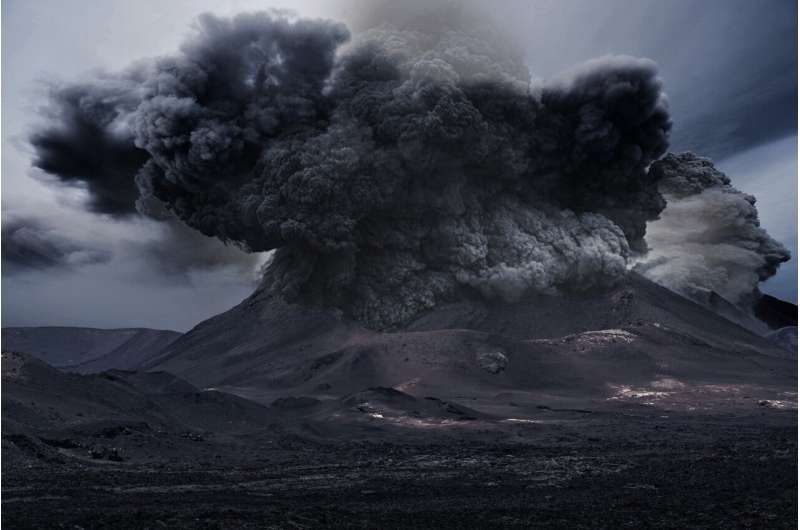This article has been reviewed according to Science X's editorial process and policies. Editors have highlighted the following attributes while ensuring the content's credibility:
fact-checked
peer-reviewed publication
trusted source
proofread
Meteoritic and volcanic particles may have promoted origin of life reactions

Precursors of the molecules needed for the origin of life may have been generated by chemical reactions promoted by iron-rich particles from meteors or volcanic eruptions on Earth approximately 4.4 billion years ago, according to a study published in Scientific Reports.
Previous research has suggested that the precursors of organic molecules—hydrocarbons, aldehydes and alcohols—may have been delivered by asteroids and comets or produced by reactions in the early Earth's atmosphere and oceans. These reactions may have been promoted by energy from lightning, volcanic activity, or impacts. However a lack of data has meant that it is unclear what the predominant mechanism that produced these precursors was.
Oliver Trapp and colleagues investigated whether meteorite or ash particles deposited on volcanic islands could have promoted the conversion of atmospheric carbon dioxide to the precursors of organic molecules on the early Earth. They simulated a range of conditions that previous research has suggested may have been present on the early Earth by placing carbon dioxide gas in a heated and pressurized system (an autoclave) under pressures ranging between nine and 45 bars and temperatures ranging between 150°C and 300°C.
They also simulated wet and dry climate conditions by adding either hydrogen gas or water to the system. They mimicked the depositing of meteorite or ash particles on volcanic islands by adding different combinations of crushed samples of iron meteorites, stony meteorites, or volcanic ash into the system, as well as minerals that may have been present in the early Earth and are found in either the Earth's crust, meteorites, or asteroids.
The authors found that the iron-rich particles from meteorites and volcanic ash promoted the conversion of carbon dioxide into hydrocarbons, aldehydes and alcohols across a range of atmosphere and climate conditions that may have been present in the early Earth. They observed that aldehydes and alcohols formed at lower temperatures while hydrocarbons formed at 300°C. The authors suggest that as the early Earth's atmosphere cooled over time, the production of alcohols and aldehydes may have increased.
These compounds may then have participated in further reactions that could have led to the formation of carbohydrates, lipids, sugars, amino acids, DNA, and RNA. By calculating the rate of the reactions they observed and using data from previous research on the conditions of the early Earth, the authors estimate that their proposed mechanism could have synthesized up to 600,000 tons of organic precursors per year across the early Earth.
The authors propose that their mechanism may have contributed to the origins of life on Earth, in combination with other reactions in the early Earth's atmosphere and oceans.
More information: Oliver Trapp, Synthesis of prebiotic organics from CO2 by catalysis with meteoritic and volcanic particles, Scientific Reports (2023). DOI: 10.1038/s41598-023-33741-8. www.nature.com/articles/s41598-023-33741-8
Journal information: Scientific Reports
Provided by Nature Publishing Group





















